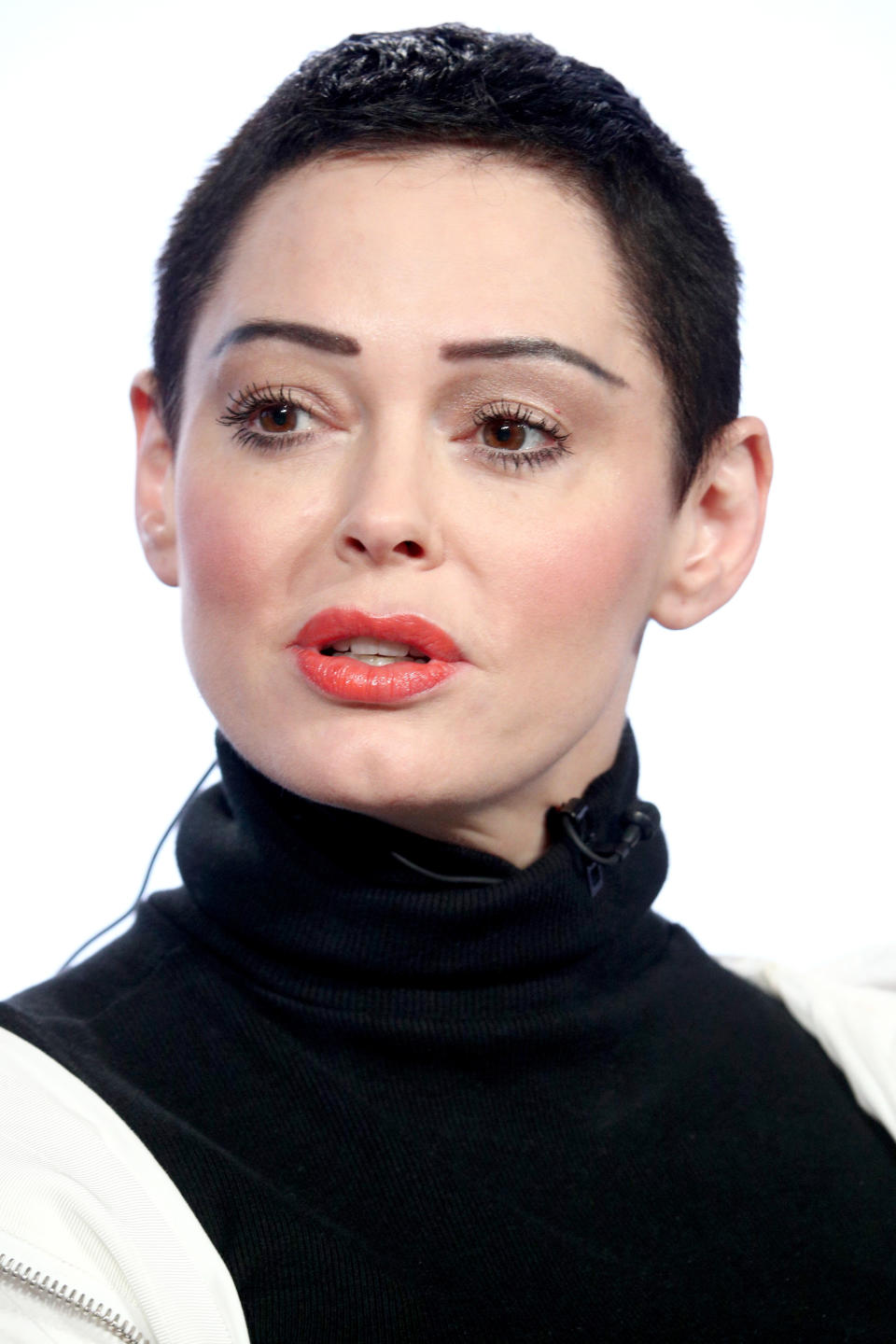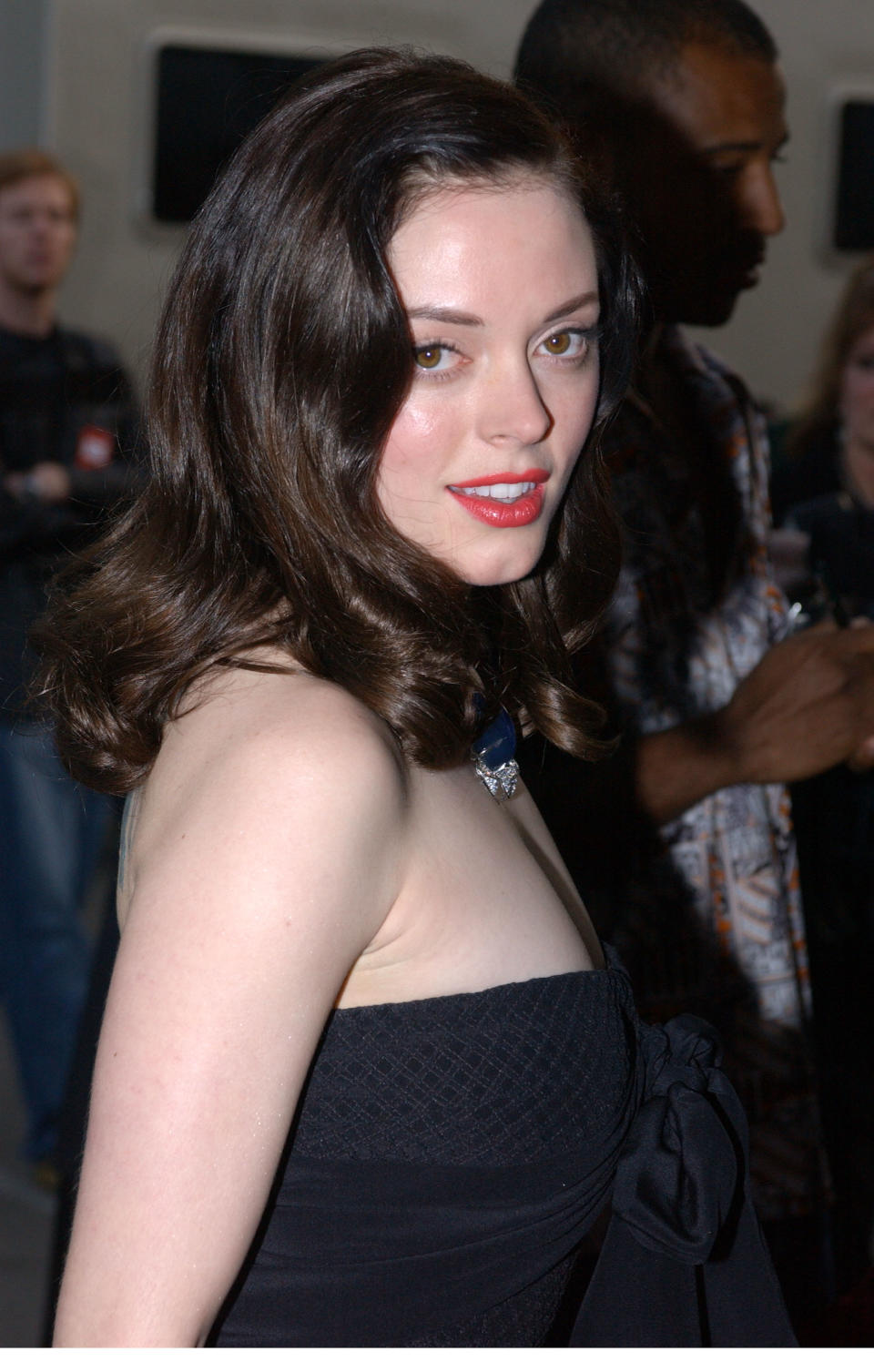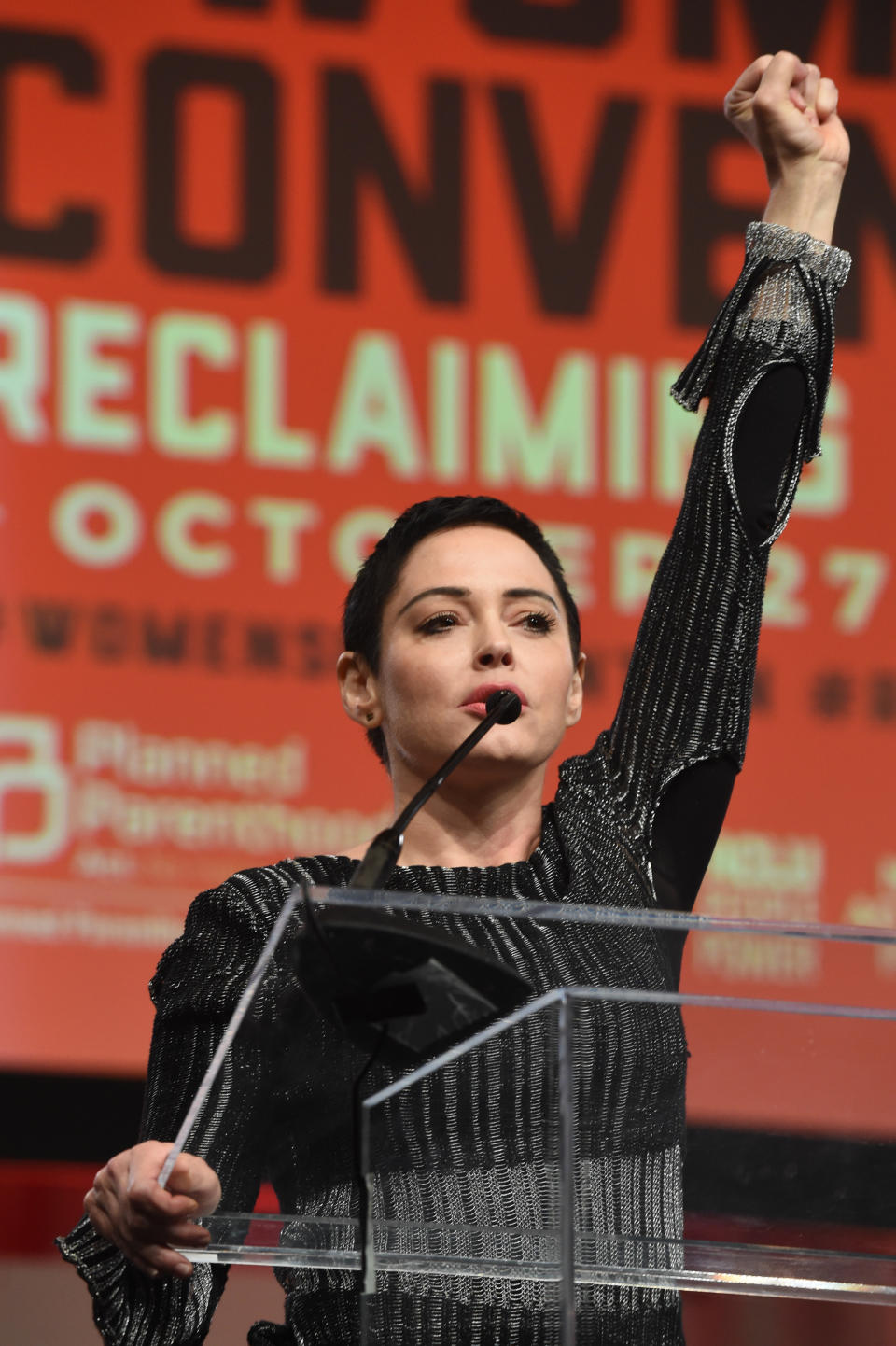Rose McGowan's new show is uncomfortable, and that's the point
“Do I make you uncomfortable?” Rose McGowan asks in voiceover, as we are met with an extreme close-up on her face while she rubs what looks like powder onto her high cheekbones. “Good.”
This question and answer comes within the first 30 seconds of McGowan’s five-part series, Citizen Rose, which premieres Tuesday night on E!. Making her audience uncomfortable is clearly important to McGowan, who instantly seeks to dispel the version of her you likely know — “the version that was sold to you,” she calls it. She’s here to set the record straight — the record being the story that she has long hinted at, and finally publicly told in 2017, of being raped by Harvey Weinstein. “The monster” as she calls him in the series, never once saying his name.

McGowan is a divisive figure, and always has been. She was sold to the American public as a “bad girl,” a sex symbol, all big eyes and pouty lips. But that version is not who she is. “It’s been really hard having the mind of an artist but being in a town that sells you as just a commodity,” she says. In Citizen Rose, we are again given a constructed version of McGowan, but it’s a construction of her own making; and in that, particularly in this moment and in this narrative, there is extreme power.

Since coming forward with her Weinstein rape allegations, McGowan has been combination powder keg and necessary rocket fuel for the #MeToo movement, garnering supporters as much as she repels them. She has championed women’s empowerment and simultaneously called out resistance efforts like the black dresses worn at the Golden Globes, as well as feuding with Meryl Streep. She is not here to make people feel comfortable or good; she is here to tell the truth — her truth. “Let me tell you how enraged I am,” she says in Citizen Rose, “Not just for me, but for anyone who’s been disbelieved.”
For 20 years, McGowan says, she was disbelieved. McGowan alleges that in 1997 Weinstein raped her in a hotel room at the Sundance Film Festival. Weinstein denies this, but McGowan says her silence was bought with $100,000 in settlement money. She is being quiet no longer, and her series is part indie movie, part video diary, part glossy E! production, all exploring McGowan’s journey into this newfound role of truth-teller, advocate, activist.

The series is complex and confounding, just like McGowan. At times, it makes you angry, and at times makes you cry, and at times make you wonder if perhaps McGowan is crazy, only to realize she is wholly sane — it’s just that she’s just lived through something entirely out of the realm of comprehension.
One of these moments comes when McGowan is speaking to her friend, the actress Amber Tamblyn, about her fear of being killed. “If I die,” she whispers to Tamblyn, “you have to keep all of my work, to be studied.” “Don’t say that,” Tamblyn responds. To which McGowan replies, “It’s our purpose. Everything I’m doing has a purpose.” In isolation, this moment seems paranoid, but then you remember a previous scene in which McGowan and Ronan Farrow, who continuously credits McGowan’s bravery as an early Weinstein accuser, are discussing the spies Weinstein definitely hired to keep McGowan silent. Anything is possible, and it is terrifying.
In her social justice crusade, McGowan uses a hashtag on social media #RoseArmy. She argues that the Rose in that hashtag isn’t about her, Rose, but rather “a secret code of: You think differently.” She says in the series, “Rose Army isn’t about my name at all. I saw these roses once growing through sidewalk cracks, and I just thought, hell, so many disenfranchised people have to grow through these cracks, and the thorns they carry weight.”
Rose Army is a good example of the paradox that is the Rose McGowan we see in Citizen Rose: almost unknowingly egotistical, but using her self-involvement for good. She uses herself, her story, her name even, to speak, to demand, to question, to heal — and constantly invites others to join her in order to process their own trauma and pain.
McGowan’s friend, the writer and actor Joshua John Miller, describes the Rose he met decades earlier as, “sometimes intimidating, sometimes arrogant, and sometimes incredibly beautiful and inspiring.” He is speaking of the young Rose McGowan but his adjectives also apply perfectly to Citizen Rose. Both Rose and Citizen Rose are complex, powerful, egotistic, human.
How McGowan journeyed from starlet in films like Scream and Jawbreaker to the woman we see on screen here buzzing her already short hair even shorter, is a dark story. “I got really interrupted, you have to understand,” she says to her mother in a powerful moment of vulnerability. “I didn’t get to be me for 17 years.”
With McGowan as the series’ star, narrator, and executive producer, we can feel assured that the Rose we meet in this series is finally the Rose she wants the world to see, the one she was long unable to express.
Rose, it’s wonderful to meet you.
Citizen Rose premieres Tuesday night at 8 p.m. ET on E!.
Read more from Yahoo Lifestyle:
New York will be the first state to require mental health education in schools
David Schwimmer hopes to educate men with his short films about sexual harassment
Follow us on Instagram, Facebook, and Twitter for nonstop inspiration delivered fresh to your feed, every day.


